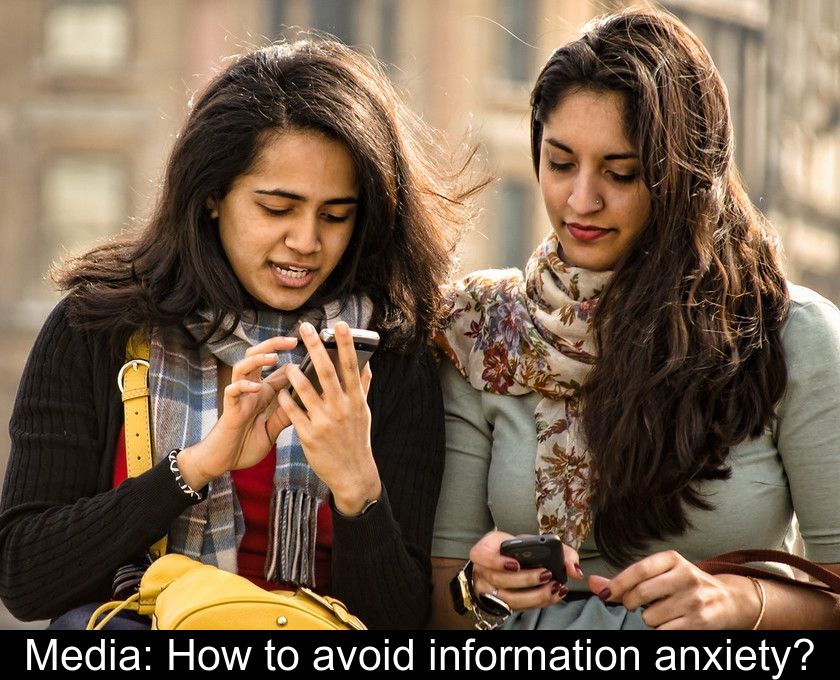Media: How To Avoid Information Anxiety?
If you feel depressed and powerless in the face of the mass of information you are bombarded with via the radio, television, and notifications on your smartphone, you are likely experiencing information anxiety. This new type of distress is affecting more and more French people. It is relatively easy to become aware of it, but more difficult to remedy. We propose to better understand this phenomenon in order to limit its consequences on your emotional well-being.
Information anxiety, a malaise of modern societies.
In our hyper-connected societies, we have to deal with an increasingly large amount of information, whether it be local, national, or international, on the internet or through more traditional information channels such as television and radio.
However, far from feeling satisfied with being better informed, more and more French people are experiencing a sense of unease known as "info-anxiety". According to a study published in September 2022 by the Jean Jaurès Foundation, 53% of respondents claim to suffer from "information fatigue".
The depressing news, which is constantly repeated on continuous news channels, can cause symptoms such as weariness, anxiety, depression, and even the search for avoidance or coping strategies.
Media detox against emotional overload
As the media engage in fierce competition and engage in an "audience race," with a flurry of scoops and sensational news, there is a significant risk of becoming addicted to news, but also of trivializing this information and sinking into indifference or denial.
"In 2011, only 17% of French people had a smartphone, compared to 87% today." In just a few years, this device has disrupted our habits and the way we inform ourselves, as smartphones allow us to follow the news almost in real time and receive notifications about climate disasters, wars, and the most sordid news events.
Not surprisingly, this intrusion of all the world's misfortunes into our daily lives is enough to compromise anyone's emotional balance. It triggers an overload of negative emotions such as sadness, anger, and a sense of powerlessness or even indifference in the face of repeated tragedies. That is why some Google News addicts choose to stop and detoxify themselves from the news.
The first solution to address news anxiety is, of course, to limit the influx of anxiety-inducing news by adopting new habits. For example, you can stop watching a continuous news channel and simply follow the news once a day on the television news.
In the same perspective of media detox or informational sobriety, you must also stop consulting the apps of major media outlets on your phone and disable all the notifications that these apps constantly send you throughout the day...
A new approach to information.
One of the most commonly adopted strategies by the public to avoid information anxiety is therefore to protect themselves from the daily avalanche of bad news. This avoidance strategy, however effective it may be for internet users and information-saturated viewers, challenges mainstream media and encourages them to rethink their editorial strategy.
During the 2023 edition of the International Journalism Festival in Couthures-sur-Garonne, a conference was organized on the theme "Informing without depressing, is it possible?". This type of debate shows that the media are gradually becoming aware of the counterproductive effect of the "fear industry".
Even though journalists should not refrain from addressing topics such as climate change or urban violence simply because these pieces of information generate anxiety, they now strive to prioritize news and accept not showing everything.
Some media outlets choose to slow down the pace of information and offer "slow news". Going against the urgency of live reporting, they prefer to delve into long-term subjects to shed light on the root causes of societal problems, rather than just describing their consequences.
At the same time, national mainstream media are increasingly giving space to positive news and lighter images at the end of their broadcasts. In the realm of online news, newsletters featuring positive information, such as Le Monde's "Le fil good", also aim to be antidotes to information anxiety.








